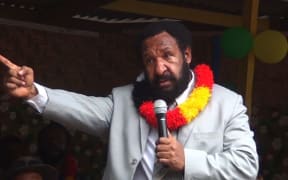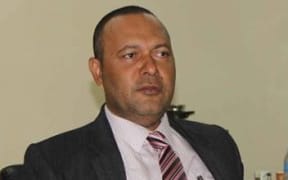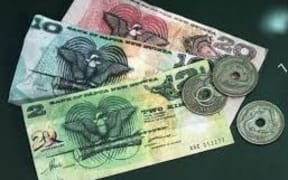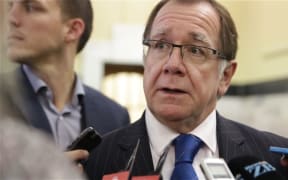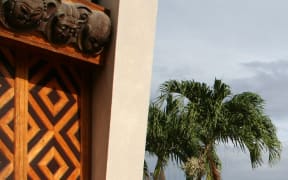Papua New Guinea's Treasurer says the country's economy has "fallen off a cliff" under the present government, led by Peter O'Neill.
But Patrick Pruaitch's damning revelation on the state of PNG's economy has been described as a political ploy on the eve of the country's five-yearly elections.
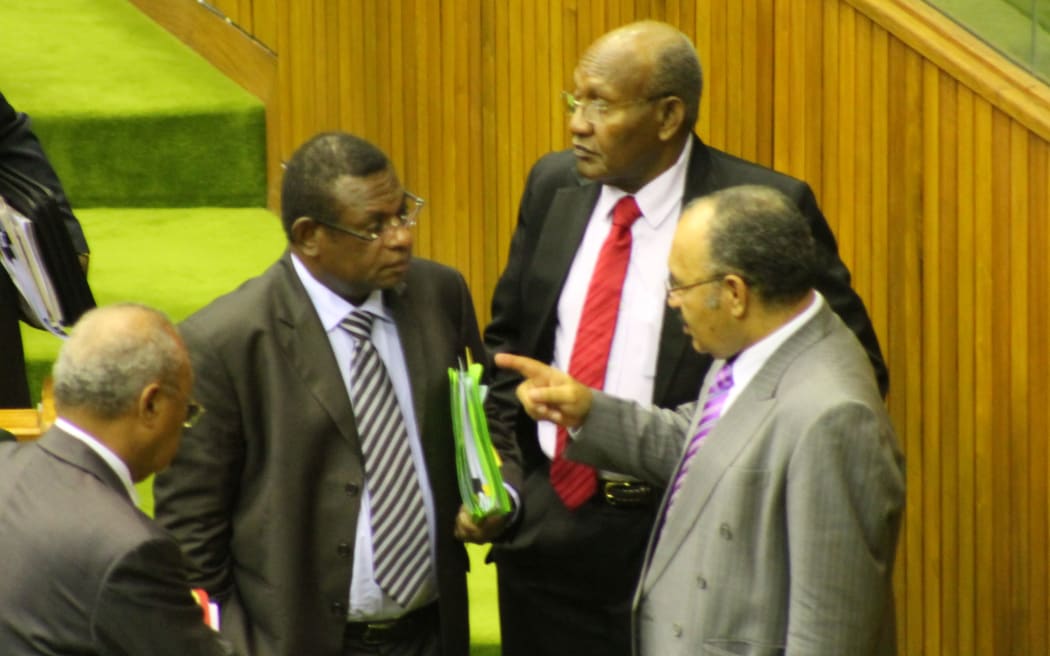
Papua New Guinea Treasurer Patrick Pruaitch (clutching folders) listens to Prime Minister Peter O'Neill (pointing finger) in parliament. Photo: RNZI / Johnny Blades
After releasing the Final Budget Outcome 2016 Report last Friday, Mr Pruaitch said the Government's total debt sat at K21.6 billion, or US$6.6 billion.
As recently as January, government figures were putting the debt at US$5.9 billion.
The 2016 Supplementary Budget calculated that revenues would increase by US$284 million but the Final Budget Outcome showed revenue actually fell by US$378 million - a difference of US$663 million.
Pressure has been building on PNG's government to reveal its true financial position for months.
Now, after successive years of collapsed revenues, the Treasurer admitted that the government's spending spree has exacerbated an economic rut where jobs in the formal sector have been falling since 2014.
"Our current government has been proudly boasting in its speeches that PNG was going to have the highest growth rate in the world. It failed to correct itself when this did not eventuate," he said.
"All Papua New Guineans would be better off today if our government had given more consideration to the quality of its spending than in promoting extravagant projects built at highly inflated costs."
Mr Pruaitch also said that despite government claims, the GDP growth rate had eroded in recent years and was expected to keep falling for the next several years.
"It seems like the economy has virtually fallen off a cliff under the present government," said the Treasurer.
Blame game
Although he has presided over the Treasury for three years, Mr Pruaitch has passed the blame on to the prime minister for allowing PNG to wrack up a record level of debt.
After a steady growth in deficit levels in the past five years, PNG's public debt is now 258 percent of its 2012 level.
According to the PNG Treasury, the debt to GDP ratio is 32.6 percent and so exceeds the 30 percent limit set out in the Fiscal Responsibility Act.
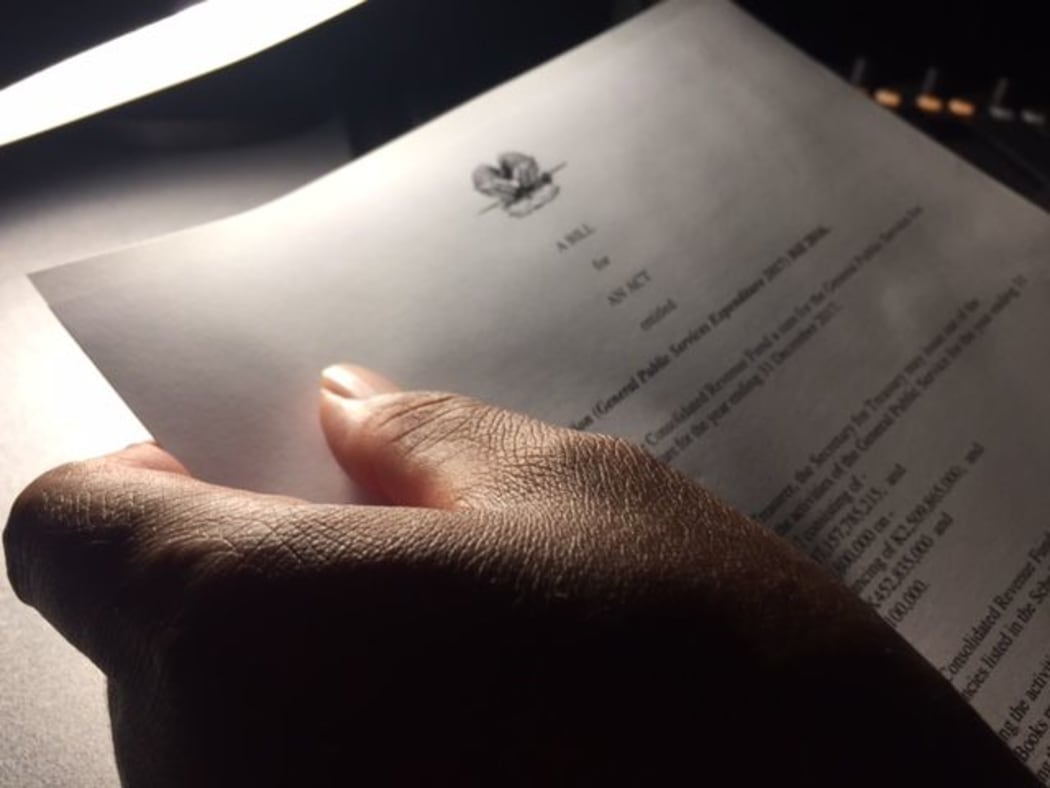
Digesting Papua New Guinea's 2017 National Budget. Photo: RNZI / Johnny Blades
While Peter O'Neill has yet to comment, his Finance Minister James Marape has released a statement responding to the Treasurer's claims.
He defended the O'Neill government's record of developing infrastructure and meeting promises on free education and health, despite the heavy hit that PNG's economy sustained since 2014 due to a prolonged commodity prices slump.
"We were beset by many other global economic challenges and phenomenons like drought related to the shut-down of Ok Tedi (copper and gold mine)."
"We embarked upon a five-year money plan that had deficit as part of the way forward," Mr Marape said.
The Minister said that Mr Pruaitch, as Treasurer, knew of this money plan that would bring the budget back to balance around this time.
"We now know he had a political motive behind his lacklustre performance as Treasurer."
Mr Pruaitch's revelations portrayed Mr O'Neill as a micro-manager of all ministries, including Treasury, where ministers were relatively powerless.
However Mr Marape said the government was a consultative administration and that Mr Pruaitch was "placed in the highest echelons to offer alternatives".
Campaigning
It is not unusual in PNG for coalition partners to fall out spectacularly, shortly before elections.
Patrick Pruaitch's revelations would seem to indicate the end of the road for his working relationship with the prime minister.
However, as leader of the National Alliance - PNG's second biggest party after Mr O'Neill's People's National Congress - Mr Pruaitch appears to be manoeuvring ahead of June's general elections.
He has indicated his desire to be prime minister and for his party to be in charge of government again.
At the tail end of the National Alliance-led government's tenure under Sir Michael Somare in 2011, PNG's total debt was US$2.3 billion.
Mr Pruaitch was a leading part of that government, including a stint as Treasurer.
When he made the revelation about the current state of PNG's economy, he was addressing a National Alliance conference in Port Moresby.
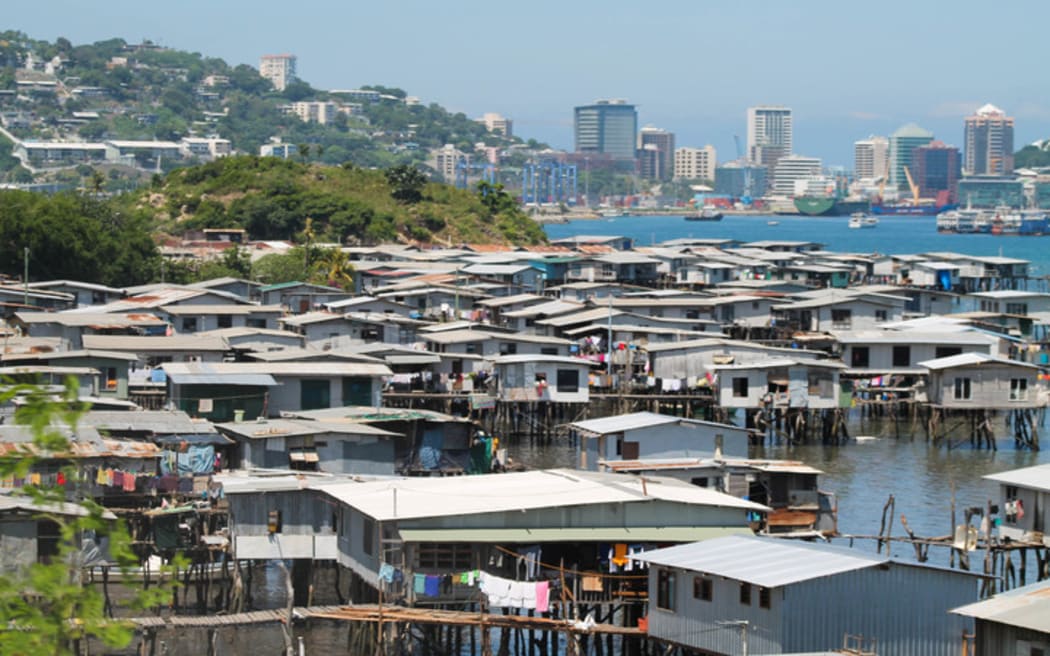
Coastal village of Hanuabada, adjacent to the CDB, in Papua New Guinea's capital Port Moresby. Photo: RNZ/Johnny Blades
James Marape's statement in response suggested Mr Pruaitch's "outburst" was a political ploy ahead of the elections.
"The National Alliance Party can retrospectively try to claim resuscitating our economy in 2002 to 2007, and the massive gains of surplus in 2008 to 2010 exacerbated by the extraordinary prices of commodity in that corresponding period."
"But least we forget under that period a massive K8 Billion budget surplus was squandered in a centralised government manner when he equally presided as the Treasurer then," the Minister for Finance said.
However, the new figure of US$6.6 billion in total debt may not even come near the real level.
Large state loans not included on the budget record, such as a US$1.8 billion China Exim Bank loan and a US$900 million UBS loan, were taken up by state-owned companies rather than the government.
PNG's true debt level may be closer to US$9 billion.
